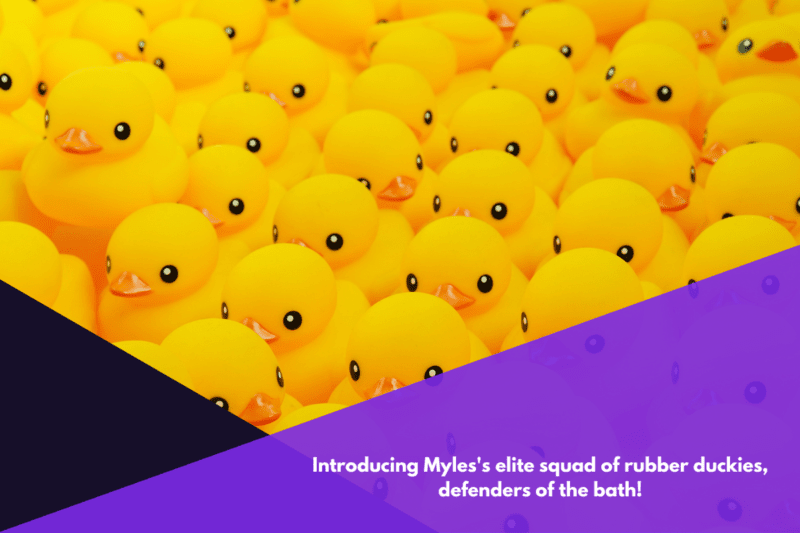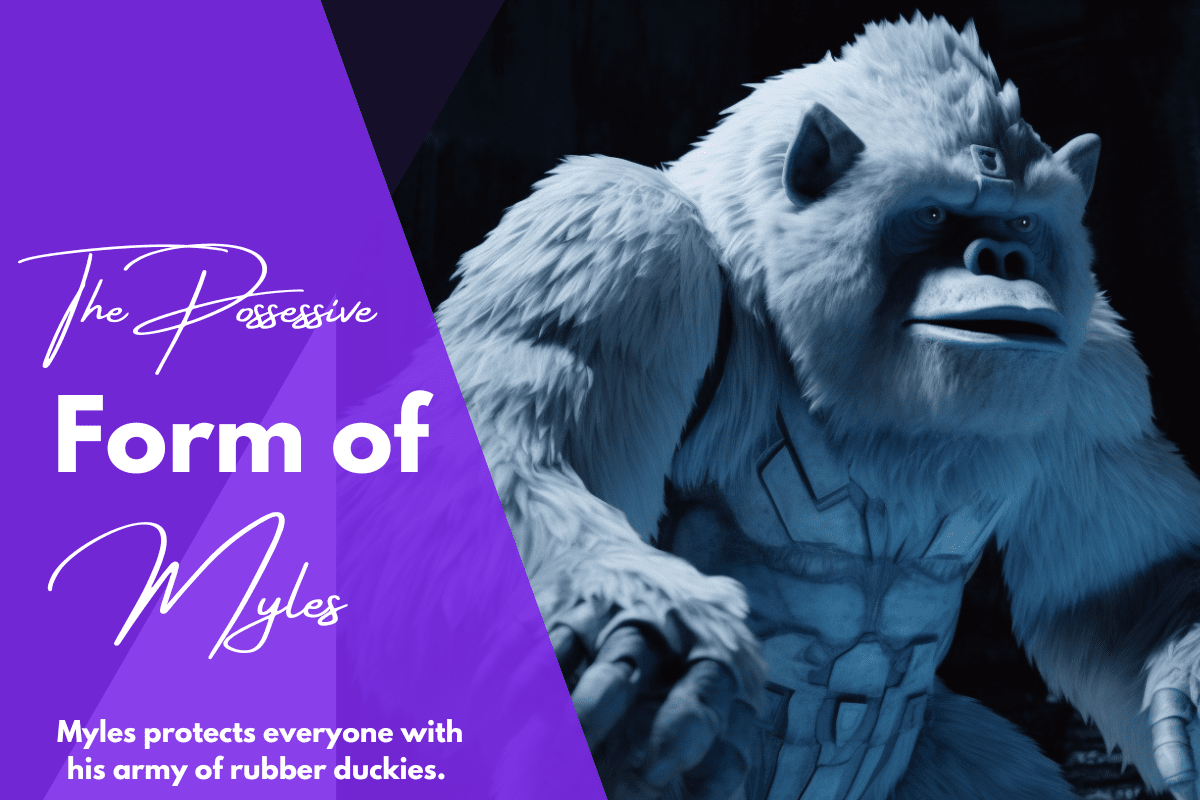You’ve been there, staring at your screen, caught in the grammar limbo that is the possessive form of Myles. Fear not, dear reader, for you have stumbled upon the treasure trove of linguistic wisdom! In this article, we will demystify the enigma that is the possessive form of Myles, and you’ll soon be brandishing your newfound knowledge like a seasoned grammarian.
| Key Takeaways |
| Both Myles’ and Myles’s are valid possessive forms, depending on the style guide used (AP Stylebook recommends Myles’, while Chicago Manual of Style, MLA, and APA prefer Myles’s) |
| Myles’ is more casual and used in informal contexts, while Myles’s is preferred in formal settings |
| Consistency is key when choosing between Myles’ and Myles’s |
| Myles’s can also be a contraction for “Myles is,” so pay attention to context |
| The name Myles means “soldier” or “warrior” and has origins in ancient Greece |
Table of Contents
What Is the Correct Possessive Form of Myles – Myles’ or Myles’s?
Myles’ and Myles’s represent two valid possessive forms of the name Myles, with their usage contingent upon the specific style guide one adheres to. For example, the Associated Press (AP) Stylebook prescribes the use of Myles’, whereas alternative style guides like the Chicago Manual of Style and the Modern Language Association (MLA) endorse the employment of Myles’s.
Decoding the Possessive Puzzle: When to Opt for Myles’ Over Myles’s

Oh, the wonders of the English language, where even a simple name like Myles can spark a grammatical debate! But worry not, we’re here to navigate the confusing waters of when to use Myles’ as the possessive form of Myles.
You see, Myles’ is the recommended form when you’re following the Associated Press (AP) Stylebook. You might be thinking, “What on Earth is the AP Stylebook?”
Well, it’s a handy little guide used by journalists, writers, and editors to ensure they’re all on the same page when it comes to grammar, punctuation, and language usage. It’s like a magical rulebook for the writing world, making sure everyone stays in line.
Now that we’ve cleared that up, let’s dive into examples of using Myles’ in a sentence:
Myles’ goldfish, Sir Bubblesworth, holds a Ph.D. in aquatic philosophy and is writing a memoir.
Myles’ secret talent is juggling flaming pineapples while reciting Shakespearean sonnets in three different languages.
In his free time, Myles’ cat, Mr. Whiskers, moonlights as a renowned feline food critic with a discerning taste for the finest tuna.
Myles’ collection of rare, vintage rubber duckies is so extensive it requires its own security detail and guided tours.
Myles’ mastery of interpretive dance earned him a coveted spot on the prestigious ‘Dancing with the Stars: Galactic Edition.’
With these examples in mind, you’re now well-equipped to use Myles’ as the possessive form of Myles whenever the AP Stylebook applies.
Cracking the Possessive Code: Deciphering When Myles’s Takes Center Stage

If you’ve made it this far, congratulations! You’ve mastered the use of Myles’ as the possessive form of Myles. But what about Myles’s, you ask? Fear not, for we shall unravel the mystery of when to use this alternative possessive form.
Myles’s is your go-to choice when all other style guides come into play. These include the Chicago Manual of Style, the Modern Language Association (MLA), and the Publication Manual of the American Psychological Association (APA). Let’s break down what each of these fancy-sounding guides is all about:
- Chicago Manual of Style: A comprehensive guide for writers and editors, this style manual covers everything from grammar and punctuation to citation styles.
- Modern Language Association (MLA): Mainly used in the humanities, this style guide is known for its citation format that helps writers credit their sources.
- Publication Manual of the American Psychological Association (APA): This one’s a favorite among social and behavioral sciences, providing guidelines on writing and formatting research papers.
Now that you’re an expert on style guides let’s have a look at some examples of using Myles’s in a sentence:
Myles’s self-proclaimed superpower is the uncanny ability to locate the best parking spot in any crowded lot, rain or shine.
The kitchen in Myles’s home doubles as a top-secret laboratory where he concocts outlandish ice cream flavors, like pickle and peanut butter swirl.
Myles’s cherished collection of antique toasters has become the talk of the town, with curious visitors flocking to his Toaster Museum.
Little did we know Myles’s dog, Fido, is an undercover canine spy, secretly gathering intel on the neighborhood squirrel mafia.
Legend says that Myles’s garden gnome army comes to life at night, partaking in epic battles with the rival lawn flamingos.
Grammar Dilemmas Unraveled: Navigating the Possessive Form of Myles When Style Guides Go AWOL

So, you’ve mastered the art of using Myles’ and Myles’s, but what happens when there’s no style guide to save the day? Well, my grammar-savvy friend, we’ve got you covered!
Consistency is the name of the game. Once you pick a possessive form, stick to it like glue. Why, you ask? Because consistency helps your readers follow along without getting lost in a sea of grammatical chaos.
Now, the setting also plays a crucial role in your choice. If you’re attending a fancy grammar party (do those exist?), Myles’s is your trusty companion for more formal settings. However, if you’re chilling at a laid-back grammar picnic, Myles’ will fit right in.
Consider the context: If you’re writing for a website or posting on social media, Myles’ is like the casual T-shirt of possessive forms – relaxed and easygoing. On the other hand, Myles’s is like the tailored suit, all prim and proper for formal occasions.
But what if you’re still scratching your head, wondering which possessive form to choose? When in doubt, go for the more formal Myles’s. It’s like dressing up for a party – it’s always better to be overdressed than underdressed.
| Key Takeaways |
| Consistency is crucial when selecting a possessive form |
| Myles’s is preferred for formal settings |
| Myles’ is appropriate for casual or informal settings |
| Context matters; Myles’ is suitable for web or social media writing, while Myles’s is better for formal writing |
| When in doubt, opt for the formal Myles’s to be safe |
It’s important to remember that adding an apostrophe and an “s” to indicate possession applies only to singular nouns and names ending in “s”. The rules are a bit different for plural nouns.
For more information on forming possessive forms of words and names ending in “s,” check out these helpful articles: one about plural nouns and another specifically on proper nouns.
Additionally, if you’re curious about how to form the possessive form of names like Tess and Morris, we’ve got you covered with two more articles you should definitely check out!
Apostrophe Showdown: Unleashing the Power of Myles’s for Smoother, More Natural Writing

Welcome to the battle of the possessive forms, where Myles’s rubber duckies face off against the rubber duckies of Myles. Which side will emerge victorious? Let’s find out!
Using Myles’s to form the possessive is like a streamlined speedboat – sleek and efficient. It gets the point across quickly and effectively without any unnecessary detours. Plus, it has the bonus of making your writing sound more natural and conversational, just like chatting with a friend.
Now, let’s look at the construction “of Myles.” This is the linguistic equivalent of a paddleboat – sure, it’ll get you where you want to go, but it might take a while, and you could end up feeling a bit seasick. The “of Myles” construction is more cumbersome and can make your writing feel stilted as if you’re trying to channel your inner Shakespeare but missing the mark.
Here’s a fun example to help illustrate our point:
Myles’s rubber duckies have formed an elite squad, fearlessly patrolling the bathtub to ensure bath time remains a safe and enjoyable experience.
The rubber duckies of Myles have banded together, creating a formidable force dedicated to the protection of the sacred bath time rituals.
Which sentence feels smoother and easier to read? We’re willing to bet it’s the first one. By using Myles’s, the sentence flows more naturally and gets straight to the point without any unnecessary frills.
So, when it comes to possessive forms, Myles’s is the clear winner. It’s the sleek speedboat that gets you where you want to go, leaving “of Myles” in its wake. So, hop on board and embrace the power of Myles’s for smoother, more natural writing!
Double Duty Apostrophe: Myles’s as Possessive and Contraction

Ah, the wonderful world of English, where one little apostrophe can cause so much confusion. Did you know that Myles’s isn’t always possessive? That’s right, sometimes it can be a contraction for “Myles is”! Now, let’s dive into the art of differentiating between the possessive and the contraction, shall we?
To crack this grammatical code, you only need to pay attention to the context. If a noun follows Myles’s, it’s probably possessive. If a verb or an adjective follows it, chances are it’s a contraction.
With that in mind, let’s explore some examples of Myles’s in action:
Possessive Myles’s
Myles’s pet octopus, Inky, moonlights as a world-class sushi chef, whipping up culinary masterpieces in the depths of the aquarium.
Little did anyone know, Myles’s backyard trampoline doubles as a top-secret launchpad for his groundbreaking space tourism business.
Contraction Myles’s (Myles is)
Myles’s convinced that he’s discovered a new planet inhabited solely by sentient marshmallows, eagerly awaiting his arrival.
In a surprising twist, Myles’s actually the mastermind behind the wildly popular underground hamster racing league.
As you can see, context is key when determining whether Myles’s is possessive or a contraction. So, keep your eyes peeled and your wits about you as you navigate the multifaceted world of Myles’s – and may the apostrophe be ever in your favor!
The Mighty Myles: A Name Worthy of Warriors and Champions

Curious about the meaning behind the name Myles? Derived from the Latin “milites,” Myles signifies “soldier” or “warrior,” evoking a sense of strength, courage, and nobility. This popular name for boys also embodies bravery and loyalty, making it an ideal choice for parents seeking a powerful and dignified name for their son.
Unraveling the Ancient Origins of Myles
The name Myles has a rich history that spans centuries, tracing its roots to ancient Greece. Derived from the name Miles, which itself originated from the Latin “milites,” the name was embraced by soldiers and warriors in ancient Greece. The name likely made its way to the British Isles with the Normans in the 11th century, and from there, its popularity spread throughout Europe and eventually reached the United States.
Now, let’s explore some variations of the name Myles in the English language and their diminutives:
| English Variation | Diminutive |
| Myles | Mylo |
| Miles | Milo |
Myles has also made its mark around the globe, with variations popping up all over the world. Check out this table showcasing the name’s international flair:
| Language | Variation | Language | Variation |
| Spanish | Milos | Swedish | Milas |
| French | Milon | Polish | Miłosz |
| Portuguese | Milão | Russian | Милос |
| Italian | Milone | Chinese | 迈尔斯 |
| Greek | Μίλος | Japanese | マイルズ |
| German | Meilas | Korean | 마일스 |
| Dutch | Mijl | Arabic | مايلز |
| Danish | Milas | Hebrew | מיילס |
| Norwegian | Milos | Swahili | Mailisi |
| Finnish | Miilo | Hindi | माइल्स |
Unlocking the Myles Possessive Mystery: A Triumph Over Grammatical Quandaries
In conclusion, the possessive form of Myles need not be a grammatical enigma any longer. With a clear understanding of the two valid forms, Myles’ and Myles’s, and their respective style guide preferences, you can confidently wield this linguistic knowledge.
Additionally, by mastering the distinction between the possessive and contraction forms, you can navigate the multifaceted world of Myles’s with ease.
Remember to choose a form based on your preferred style guide or context and maintain consistency throughout your writing. With this newfound knowledge, you’re well-equipped to face the world of English grammar and showcase the might and versatility of the name Myles.

